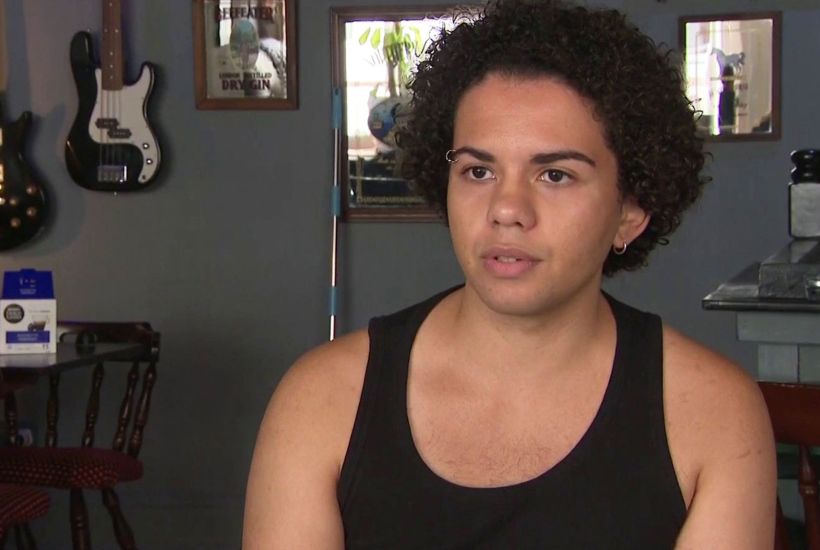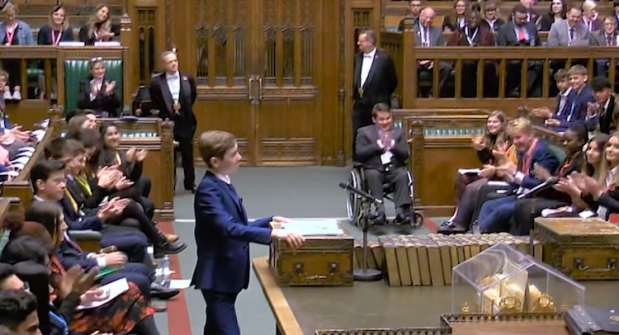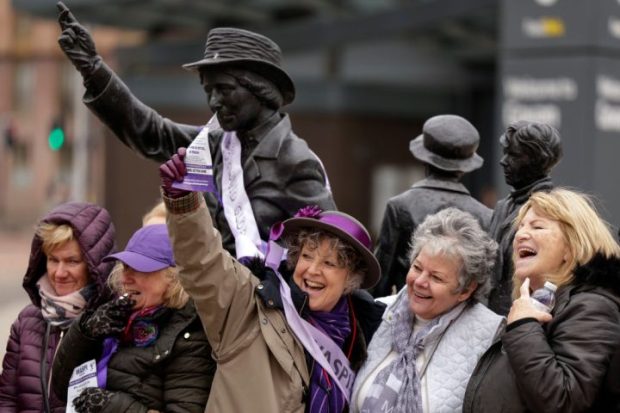A ground-breaking case in the High Court will decide this week whether the UK’s only gender identity development service (GIDS) for under-18s will be allowed to continue to prescribe puberty blockers for children as young as 10-years-old. The case against the Tavistock and Portman NHS trust, which runs GIDs, is currently conducting its own internal review as a response to the growing controversy surrounding its practice.
Keira Bell, now 23, was prescribed puberty blockers by GIDS when she was 16. Keira went on to use testosterone, before having a double mastectomy when she was 20. She now regrets transitioning, but may well be infertile as a side effect of the drugs she has taken.
Keira is hoping that her case will prevent further medical experimentation on children. ‘Transition was a very temporary, superficial fix for a very complex identity issue,’ she says.
I have interviewed a number of young lesbians who have de-transitioned back to being female during the last couple of years. All have a similar story. These women often experienced serious abuse and harassment and developed feelings of self-hatred as a result of anti-lesbian bullying.
As Keira said: ‘I made a brash decision as a teenager, as a lot of teenagers do, trying to find confidence and happiness, except now the rest of my life will be negatively affected.’
I have some idea of how Keira came to decide she wanted to change sex. Growing up in a male-dominated environment and attending a school where I was bullied for rejecting boys, I was confused to say the least. I hated wearing a skirt and had zero interest in experimenting with make-up. I had a crush on my best friend, and convinced myself that because I didn’t fancy boys, there was something seriously wrong with me.
This was the 1970s when, particularly in working-class communities, girls were confined in the straitjacket of gender roles. As a tomboyish lesbian, I was treated like a freak pariah and felt like one. I would go to sleep wishing I was a boy which would have meant I was ‘normal’. If I could have waved a magic wand and changed sex I would have done so.
Finding feminism and meeting other lesbians who were proud of their sexuality gave me a totally different perspective, and those feelings of dysphoria and self-hatred soon disappeared.
Some supporters of medical intervention for gender dysphoria have argued that Keira Bell’s case is not just about trans-identified youth but a much wider issue about whether we believe children and young people have a right to treat their bodies as their own.
As a feminist of course I support the right for young people to maintain bodily autonomy, particularly when female bodies seem to be public property, with abortion restricted or even criminalised in a number of countries around the world, and sexual assault being so endemic.
But is a 10-year-old child asking to go on puberty blockers really the same as girls having the right to be prescribed the contraceptive pill? Do we think it’s okay for a 12-year-old to have extensive tattoos and piercings, or to spend their pocket money on porn? Of course not. So why then do the supporters of this medicalised approach think children can take irreversible and potentially damaging medication on a pathway to full sex reassignment surgery?
As the court heard, ‘nearly 100 per cent’ of all children who start taking hormone blockers will later begin taking irreversible and potentially harmful cross-sex hormones.
In 2003 I wrote about the increasing normalisation of transsexuality. ‘A growing phenomenon is that of female-to-male transsexualism, with several operations conducted every year, which can include double mastectomy, hysterectomy and phalloplasty (the construction of a penis using skin grafts from the arms or stomach). Testosterone enables beard growth, muscle development and lowering of the voice,’ I wrote.
I quoted Claudia at the time, a trans woman who feels she was rushed through hormone treatment and surgery in the 1980s and has since regretted transitioning.
‘I want psychiatrists and surgeons to provide a more realistic explanation of what you will be left with, physically and emotionally, after the operation,’ Claudia told me. ‘If by speaking out I can prevent another confused, messed up individual going through this, it will have been worth it’. Why, 17 years after I wrote about sex change regret, and two years after the launch of the campaign group Detransitioner Advocacy Network, are we only just seeing our first legal challenge?
Keira’s case is not, as some claim, about ‘the healthcare of trans children’ but rather about girls so distressed by the levels of hatred and misogyny they encounter they look for an escape from their female bodies. I felt like Keira did when I was her age, as did many of my lesbian friends.
Putting kids on drugs and a possible path to unnecessary surgery because they are experiencing psychological distress caused by external factors is a human rights violation. It is high time that we see it for what it is. Let’s hope the court does, and this practice of medicating and carving up healthy young bodies will be replaced by appropriate care and support for these vulnerable young women. That I write this as a happy lesbian as opposed to a regretful transman is only because when I felt as Keira did, the GIDs clinic did not exist.
Got something to add? Join the discussion and comment below.
Get 10 issues for just $10
Subscribe to The Spectator Australia today for the next 10 magazine issues, plus full online access, for just $10.




















Comments
Don't miss out
Join the conversation with other Spectator Australia readers. Subscribe to leave a comment.
SUBSCRIBEAlready a subscriber? Log in